

The 7 questions every new teacher should be able to answer. Teaching for the 21st century looks a lot different.
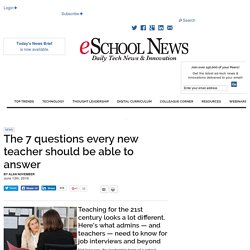
Here’s what admins — and teachers — need to know for job interviews and beyond Not long ago, the leadership team of a school district I was working with asked me: “If you were going to hire a new teacher, what would you ask in the interview?” They were concerned that hiring teachers with the right skills now can save a district a lot of money in staff development later. Moreover, they wanted to hire teachers who would be open minded about changes to come. The problem is to balance the reality of today’s pressure for test scores and required teacher evaluation with the changes that can be anticipated during the next two decades. As I wrote in my last column, the traditional skill we valued in teachers when paper was the dominant media—the ability to transfer knowledge of a subject—is becoming less important.
Inst coach rubric. Mentor%20Handbook Reflecting%20and%20Debriefing. William & Mary School of Education - Page not found. Educational Leadership:Feedback for Learning:Seven Keys to Effective Feedback. Instructional Practice for the CCSS. Instructional Coaching. Instructional Coaching Tools. Last week I shared the instructional coaching data tracker I use to help organize and reflect on my work in coaching cycles throughout the year.
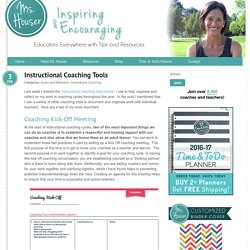
In the post I mentioned that I use a variety of other coaching tools to document and organize work with individual teachers. Here are a two of my most important. Observation Templates - Kappa Teachers. We should all be in each others' classrooms as much as possible.
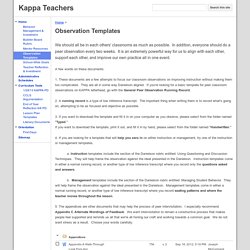
In addition, everyone should do a peer observation every two weeks. It is an extremely powerful way for us to align with each other, support each other, and improve our own practice all in one event. National School Reform Faculty. Please download and read our Self-Guided Tour to CFG® Work for more information in a more easily shared format, and watch our four-minute video about our trainings.
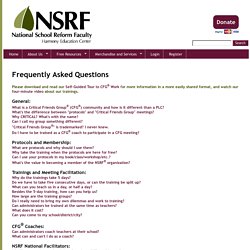
General: What is a Critical Friends Group® (CFG®) community and how is it different than a PLC? What's the difference between "protocols" and "Critical Friends Group" meetings? Powered by Solution Tree. Professional learning community (PLC) An ongoing process in which educators work collaboratively in recurring cycles of collective inquiry and action research to achieve better results for the students they serve.
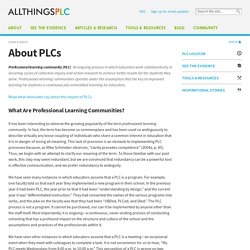
Professional learning communities operate under the assumption that the key to improved learning for students is continuous job-embedded learning for educators. Read what advocates say about the impact of PLCs. What Are Professional Learning Communities? It has been interesting to observe the growing popularity of the term professional learning community. Coaching Teachers: What You Need to Know. Published Online: February 16, 2011 By Elena Aguilar Last spring, a major study suggested that putting literacy coaches in schools can help boost students’ reading skills by as much as 32 percent over three years.
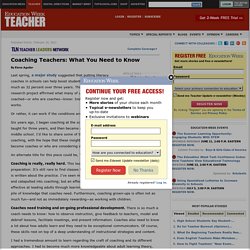
This four-year, nationwide research project affirmed what many of us who have been coached—or who are coaches—know: Instructional coaching works. Or rather, it can work if the conditions are right. Six years ago, I began coaching at the school where I was then teaching. An alternate title for this piece could be, "If Only I Had Known. " Coaching is really, really hard. Coaches need training and on-going professional development. 92. Mentor b. Observation and Feedback. Types of Feedback and Their Purposes. Why Understanding These Four Types of Mistakes Can Help Us Learn. By Eduardo Briceño This article was first published in the Mindset Works newsletter.
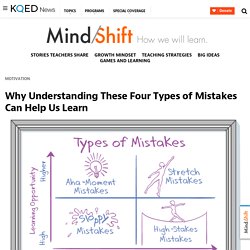
We can deepen our own and our students’ understanding of mistakes, which are not all created equal, and are not always desirable. After all, our ability to manage and learn from mistakes is not fixed. We can improve it. How to help principals do a better job? Train their bosses. OAKLAND, Calif. — It was almost the end of first period at Bret Harte Middle School when the five superintendents descended on math class.
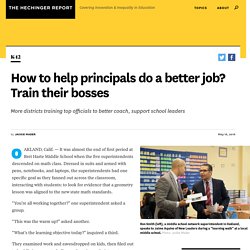
Dressed in suits and armed with pens, notebooks, and laptops, the superintendents had one specific goal as they fanned out across the classroom, interacting with students: to look for evidence that a geometry lesson was aligned to the new state math standards. “You’re all working together?” One superintendent asked a group. “This was the warm up?” Asked another. “What’s the learning objective today?” They examined work and eavesdropped on kids, then filed out to huddle in an empty hallway, where it was their turn to answer some questions. “Alright. “My group told me they were ‘flipping shapes around and seeing what we get,’” one superintendent responded. “They got the concept,” said another. What a difference a word can make. People spend a good deal of time talking to one another, and in general we do it pretty well.
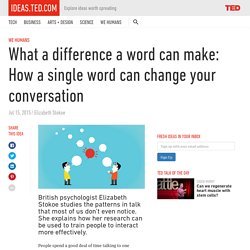
We might feel excited, angry, embarrassed, or — if we’re lucky — loved, in the course of our daily conversations. So is there any benefit to thinking about a science of talk? Value Of Instructional Coaching For Teachers. Achievethecore.org Instructional Practice for the CCSS Alignment. Chapter2 Jim Knight. Coaching Teachers What You Need to Know Education Week Teacher Start Here. Coaching PD for Coaches. Effects of instructional coaching on teachers and transcript balance of activities. How to Incorporate Principles of Adult Learning into Training. InstructionalCoaching. Mentor b Handouts. Observation and Feedback Resources TNTP. Peer coaching tips. Resources Instructional Coaching.
School of Education at Johns Hopkins University Cognitive Coaching. Sociocultural learning and coaching transcript.